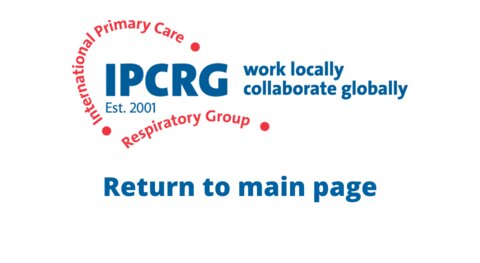What is the prognosis of re-infection by the SARS-CoV-2 Omicron variant in patients without prior vaccination?
What the research says:
Reinfection with SARS-CoV-2 variants was rare for up to 12 months following an initial infection prior to the emergence of the Omicron variant (Racine et al 2022; Xiangying et al 2022). Among unvaccinated healthcare workers in Canada the reported reinfection incidence rate was 4.0 per 100 person-years (Racine et al 2022). The risk of re-infection has been shown to increase over time since prior infection (Yair Goldberg et al 2021). Prior to the emergence of the Omicron variant infection with one variant appeared to provide some degree of immunity from infection with other variants. However, the Omicron variants appears to be better able to evade any immunity derived from prior infections and consequently reinfection rates with the Omicron variants in previously infected individuals are higher than for previous SARS-CoV-2 variants (Pulliam et al 2022). There may also be differences in levels of immunity achieved depending on the precise Omicron variant with which the patient was previously infected.
Reinfections appear to be associated with similar or milder disease course (Nguyen et al 2022; Brouqui et al 2021; Lawandi et al 2022) and has a protective effect against severe COVID-19 illness and death (Hall et al 2021; Ridgway et al 2022; Mensah et al 2022; Qureshi et al 2022; Abu-Raddad et al 2021). Predictors of severe disease on reinfection include: older age, severe disease on primary infection, immunosuppressed status and underlying chronic kidney disease (Murillo-Zamada et al 2021).
What this means for your clinical practice:
- Pending data to inform the optimal time post-infection for vaccination against SARS-CoV-2, all eligible adults should continue to receive recommended vaccinations regardless of prior infection status
- Reassure patients that reinfection with SARS-CoV-2 is rare in the months following a primary infection (in the region of 4 cases per 100 person-years), even for the current Omicron variants, and when it does occur the illness is usually the same or milder than the first time
- Test results can remain positive for weeks and months following an acute illness and repeat testing within 30 days is not generally recommended
- Continue to advise patients that the best protection against severe illness and death is vaccination and encourage those who remain unvaccinated to receive all recommended vaccines
- Continue to encourage patients at increased risk for more severe illness from SARS-CoV-2 infection to consider additional COVID-19 booster vaccinations according to National Guidelines, particularly as the new vaccines become available with specificity for the Omicron variant, and to follow social distancing and other local guidelines to minimise their risk of infection
With grateful thanks to Tiago Maricoto, MD, PhD (Family Doctor, Aradas Health Unit and University of Beira Interior, CACB-Clinical Academic Centre of Beiras, Portugal) for and on behalf of the IPCRG practice driven answers review group.
Useful links and supporting references:
Abu-Raddad LJ, et al. Severity of SARS-CoV-2 reinfections as compared with primary infections. NEJM 2021;385:2487–9. Available at: https://pubmed.ncbi.nlm.nih.gov/34818474/. Accessed May 2022.
Brouqui P, et al. COVID-19 re-infection. Eur J Clin Invest 2021 ;51 :e13537. Available at : https://pubmed.ncbi.nlm.nih.gov/33675046/. Accessed May 2022.
Hall VJ, et al. SARS-CoV-2 infection rates of antibody-positive compared with antibody-negative health-care workers in England: a large, multicentre, prospective cohort study (SIREN). Lancet 2021;397:1459–69. Available at: https://pubmed.ncbi.nlm.nih.gov/33844963/. Accessed May 2022.
Lawandi A, et al. Suspected severe acute respiratory syndrome coronavirus 2 (SARS-CoV-2) reinfections: Incidence, predictors, and healthcare use among patients at 238 healthcare facilities, 1 June 2020 to 28 February 2021. Clin Infect Dis 2022;74:1489–92. Available at: https://pubmed.ncbi.nlm.nih.gov/34351392/. Accessed May 2022.
Mensah AA, et al. Disease severity during SARS-CoV-2 reinfection : a nationwide study. J Infect 2022;84;542–50. Available at: https://pubmed.ncbi.nlm.nih.gov/35085659/. Accessed May 2022.
Murillo-Zamada E, et al. Predictors of severe symptomatic laboratory-confirmed SARS-CoV-2 reinfection. Public Health 2021;193:113–5. Available at: https://pubmed.ncbi.nlm.nih.gov/33774512/. Accessed May 2022.
Nguyen NN, et al. SARS-CoV-2 reinfection and COVID-19 severity. Emerg Microbes Infect 2022;11:894–901. Available at : https://pubmed.ncbi.nlm.nih.gov/35264078/. Accessed May 2022.
Pulliam JRC, et al. Increased risk of SARS-CoV-2 reinfection associated with emergence of Omicron in South Africa. Science 2022;376. Available at: https://www.science.org/doi/10.1126/science.abn4947/ Accessed May 2022.
Qureshi A, et al. Reinfection with severe acute respiratory syndrome coronavirus 2 (SARS-CoV-2) in patients undergoing serial laboratory testing. Clin Infect Dis 2022;74:294–300. Available at: https://pubmed.ncbi.nlm.nih.gov/33895814/. Accessed May 2022.
Racine E, et al. The Reinfection in COVI-19 Estimation of Risk (RECOVER) study: reinfection and serology dynamics in a cohort of Canadian healthcare workers. Influenza and Other Respiratory Viruses 2022 doi 10.1111/irv.12997. Available at: https://pubmed.ncbi.nlm.nih.gov/35510653// Accessed May 2022.
Ridgway JP, et al. Rates of COVID-19 among unvaccinated adults with prior COVID-19. JAMA Network Open 2022;5:e227650. Available at: https://pubmed.ncbi.nlm.nih.gov/35442459/. Accessed May 2022.
Xiangying R, et al. Reinfection in patients with COVID-19: a systematic review. Global Health Res Policy 2022;7:12. Available at: https://pubmed.ncbi.nlm.nih.gov/35488305/. Accessed May 2022.
Yair Goldberg, et al. Protection and waning of natural and hybrid COVID-19 immunity. mrRxiv 2021. Doi 10.1101/2021.12.04.21267114. Available at: https://www.medrxiv.org/content/10.1101/2021.12.04.21267114v1.full.pdf/ Accessed May 2022.
Resource information
- COVID-19
- COVID Variants
- Immunity
